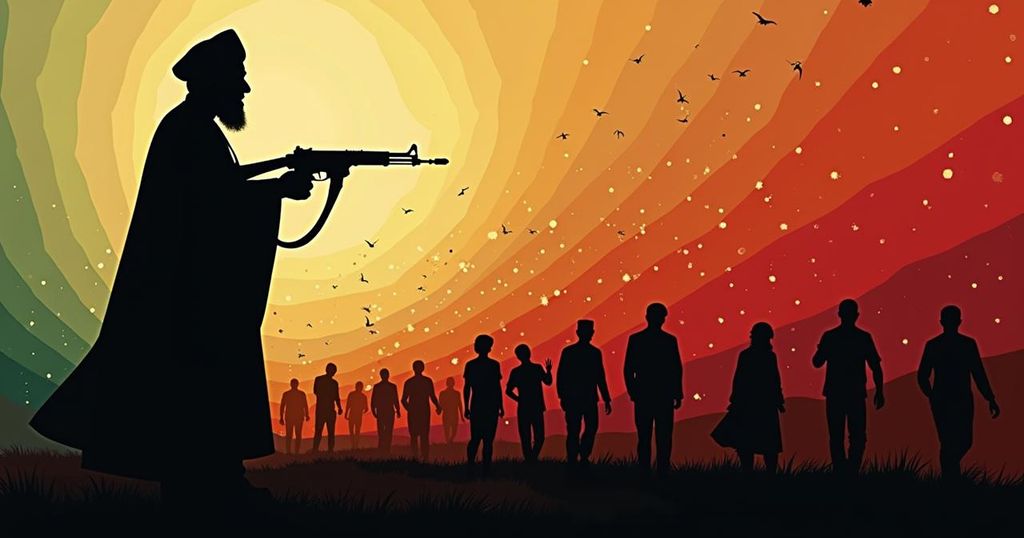The assassination of Hezbollah leader Hassan Nasrallah has initiated unprecedented dynamics in the Middle East, compelling Iran to make a crucial decision regarding its response. The event raises significant questions about Iran’s credibility and strategy, while simultaneously exposing the United States to diplomatic humiliation as it grapples with an increasingly assertive Israel under Netanyahu.
The recent assassination of Hassan Nasrallah, the leader of Hezbollah, marks a pivotal moment in Middle Eastern geopolitics, plunging the region into a state of unprecedented uncertainty. Following the death of Nasrallah, attention is now focused on Iran’s potential response. Tehran is confronted with a critical decision: whether to condemn Israel aggressively for the elimination of a key figure in its resistance axis or to pursue a pragmatic approach that may involve advising Hezbollah to accept a ceasefire without addressing the situation in Gaza. Iran’s reformist leadership, which has been striving for improved relations with the West, faces challenges in justifying any form of restraint after Nasrallah’s death, particularly given its ties to Hezbollah’s objectives in the region. The newly elected president of Iran, Masoud Pezeshkian, finds himself in a precarious position. His government has been working hard to restore diplomatic relations and lift economic sanctions, culminating in diplomatic activities at the recent UN General Assembly. With his foreign minister meeting European counterparts to discuss the revival of the nuclear deal, Nasrallah’s assassination complicates efforts to maintain a diplomatic position without appearing weak. Moreover, Ayatollah Ali Khamenei, Iran’s supreme leader, has publicly urged support for Hezbollah, indicating a potential for increased military response against Israel. Yet, if Iran were to engage militarily, it must recognize the formidable capabilities of the Israeli military, which has demonstrated technological superiority and intelligence penetration into Hezbollah’s ranks. For the United States, this incident represents a significant diplomatic setback, revealing its limitations in influencing Israeli actions. Prime Minister Netanyahu’s apparent disregard for American strategic guidance amidst a tumultuous geopolitical landscape further compounds this humiliation, implying a growing divide in US-Israel relations. As Netanyahu approaches a presidential election buoyed by domestic support, the US appears to be losing leverage over Israel, potentially leading to a scenario where Iran’s response could reset the balance of power in the region entirely.
The assassination of Heshan Nasrallah, a prominent figure in Hezbollah, has significant implications for the geopolitical stability of the Middle East. The incident comes at a time when tensions between various state and non-state actors are strained, particularly following the recent conflict involving Hamas. Nasrallah’s leadership role in the so-called ‘axis of resistance’ has posed a consistent challenge to Israel and its allies, and his death raises critical questions about Iran’s response and the future of Hezbollah. Iran’s strategies have been directed towards fostering regional alliances while navigating international pressures to reform its policies, particularly concerning the nuclear deal with Western powers. The ensuing decisions following Nasrallah’s assassination will likely alter the dynamics of its alliances and military posture in the region.
In conclusion, the assassination of Hassan Nasrallah marks a significant turning point in Middle Eastern politics, placing immense pressure on Iran to respond decisively while navigating complex international diplomatic waters. The implications of this event extend beyond Hezbollah and require strategic reassessments within Iran’s leadership. Meanwhile, the United States faces diplomatic embarrassment and diminished influence over Israel, with potential ramifications for regional stability. The choices made in the coming days will likely shape the future of the Middle East for years to come.
Original Source: www.theguardian.com






